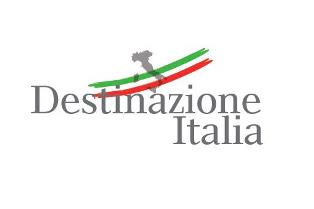

WTI Magazine #15 2014 Jan, 31
Author : Destinazione Italia Translation by:
Developed in close coordination with the economic policy priorities set out in the Economic and Financial Planning Document, Destinazione Italia establishes a set of measures to foster inbound investments in a cohesive and structural manner and increase Italian companies' competitiveness. These measures will be introduced to our legal system following a timescale on which the Government's agenda will be based.
In its initial version, Destinazione Italia consists of 50 measures whose goal is to reform a broad range of sectors, from tax to employment and civil justice to research; to enhance and build upon our assets; and to develop investment-focused policies to promote our country at the international level. Every week We the Italians will promote 2 of these measures
7) SIGN SOCIAL SECURITY INTERNATIONAL CONVENTIONS AND BILATERAL AGREEMENTS
Italy has not ratified the international ILO convention on social welfare, as it has also delayed signing bilateral conventions with various countries that would ensure the reciprocal social welfare treatment of foreign workers in Italy and Italian workers abroad. This delay makes the country less competitive by reducing opportunities for multinationals to invest in Italy. The intention is to accelerate the signing of such protocols, beginning with the one signed with Japan, in order to ensure full reciprocity in the social welfare treatment of workers.
• Paying taxes
Once they have drawn profits from their investments, businesses must then pay taxes. But fulfillment of tax obligations must not become an obstacle to investment. What is needed are clear and non-punitive rules; our tax system needs certainty, in as much as frequent changes in fiscal law result in a negative fallout on the credibility and medium-to-long term stability of tax policy. Certainty and stability in fiscal legislation, including the interpretation of laws and jurisdictional activity, are as important to fiscal competition among States as taxation levels are.
It is also crucial to ensure our country's active participation in initiatives undertaken at international and EU levels aimed at providing an effective and coordinated response to tax evasion and avoidance. This activity will also include updating the list of countries that have ratified Conventions stipulated by Italy guaranteeing transparency standards in line with OECD recommendations.
The government mandate for a fairer, more transparent and growth-oriented tax system, currently under the scrutiny of Parliament, will allow for more certainty and stability in tax legislation through: redefinition of the abuse of right and of avoidance, extended to all taxes and accompanied by adequate procedural guarantees; improvement of relations with taxpayers in keeping with the enhanced relationship proposed by the OECD that envisages an internal system of controls and management of fiscal risk on the part of major taxpayers; revision of criminal and administrative sanctions, according to criteria proportional to the seriousness of the behaviour; and the better handing of disputes.
8) REVIEW OF THE ABUSE OF LAW
Problem/opportunity: the concept of the abuse of law arose within the framework of the European Union as a consequence of several Court of Justice rulings limited to the area of tax harmonisation, and subsequently developed in Italy following several appellate court rulings. It is a jurisprudential element that confuses and creates uncertainty, with major criminal repercussions, regarding the borderline between tax evasion and avoidance, and also implicates taxpayer behaviours that, while legal, aim to reap advantages not envisaged by the lawmaker. A too broad interpretation of the definition of abuse undermines the certainties necessary for adequate fiscal planning.
Solution: as recommended by the Working Group appointed by the President of the Republic, the definition of the abuse of right must be reviewed, aligning it with that of avoidance in keeping with EU Court of Justice case-law on the matter and with the most recent Community stances. Taxpayers may be sanctioned only if the actual evasion of tax laws or restrictions can be proven. Simple tax savings would no longer be subject to sanction. Abuse, therefore, must be defined in reference to acts lacking in adequate economic justification for the exclusive purpose of avoiding legal fiscal obligations or restrictions and obtaining tax reductions or reimbursements.
Specific procedural rules are needed to guarantee an effective interface between financial administrations and businesses, safeguarding taxpayers' right to defense.
You may be interested
-
Carlo Calenda (Italian Vice Minister for the...
Carlo Calenda is the Italian Vice Minister for the Economic Development, and this is his f...
-
Con Destinazione Italia, in campo la diplomaz...
Una diplomazia culturale italiana orientata a fidelizzare gli utenti stranieri al nostro p...
-
Destinazione Italia Attracts Further FDI to t...
by Mauro Battocchi Italy is rapidly reforming its markets to further entice innov...
-
Destinazione Italia, F. Napolitano’s View On...
Fernando Napolitano provides his input to "Destinazione Italia", a 50 policy action docume...
-
Destinazione Italia: 30 days of open consulta...
by Flavio Notari Destinazione Italia is the expression of an Italian policy to attract fo...












